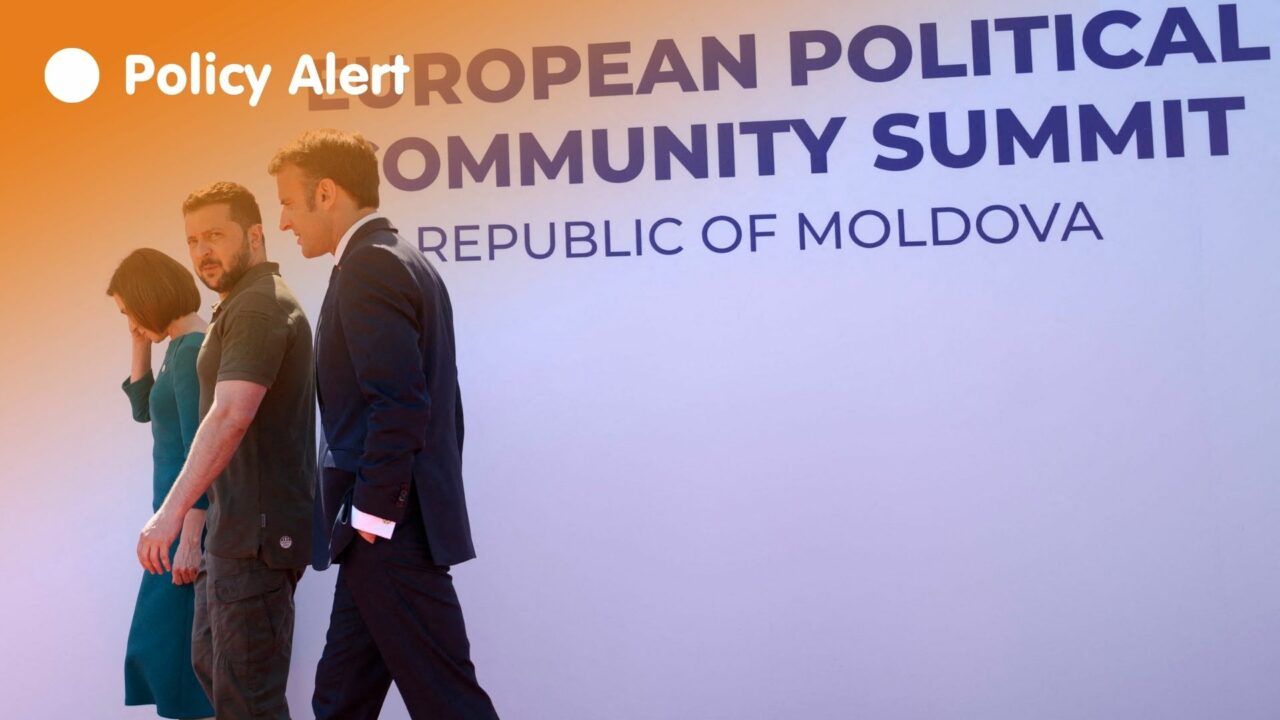No procedures, no problem: The European Political Community as a platform for security dialogue
Critics of the European Political Community (EPC) argue that it suffers from a lack of institutional depth that limits its potential impact. The format’s precise role also remains unclear, as does the value it adds to existing institutions such as the European Union, NATO, the Organization for Security and Cooperation in Europe (OSCE), and the Council of Europe.
But, in confronting the security challenges Europe faces today, these institutionalised formats have their own limitations. For instance, NATO and the EU invite and distinguish between members and partners, narrowing the range of perspectives present – and the OSCE’s very existence is under threat due to its requirement for consensus decision-making. Security is only one basket of the EPC, but it is one in which the format could help fill some of these gaps and complement more institutionalised forums.
Security dialogue in the EPC
In the realm of security, the EPC’s value lies in its potential to foster dialogue. It could prove particularly useful in the following three ways:
- The EPC offers a venue to address specific security crises. Like other formats for high-level international engagement, the EPC is first and foremost a platform for dialogue at the most senior level. This is especially valuable as many EPC participants have few opportunities to meet on such ‘neutral ground’. June’s EPC summit in Chisinau, for example, was a platform for dialogue between Azerbaijan and Armenia. This week’s meeting in Granada could provide a new opportunity to prevent further escalation between the countries.
- The EPC can prepare the ground for new security initiatives. The format offers a rare space to test ideas in closed sessions while also publicly promoting more advanced initiatives. Some EPC initiatives might later flourish in a more formal environment such as the EU, OSCE, or NATO. Without the Prague EPC summit, the EU’s mission in Armenia would probably not have been possible; Granada is an opportunity to revisit its mandate.
- The EPC provides an opportunity for ad hoc coalitions to promote security initiatives. The new format is conducive to initiatives that bring together countries in small groups. The EPC therefore offers a unique opportunity to those countries on the margins of the European security debate (as non-EU or non-NATO countries) to promote their initiatives and see them supported or endorsed by others.
Three negatives can make a positive
When it comes to security, the EPC’s lack of institutionalisation, rules, and procedures could in fact be its greatest strengths:
- The EPC is not a group of like-minded nations. Even without Russia and Belarus, the EPC brings together countries across a broad spectrum of strategic positioning and opinions.
- The EPC is not a partnership format. Every EPC participant can contribute to the agenda and has an equal seat at the table.
- The EPC is not an institutionalised format. The EPC’s informality – including its lack of rules and procedures – makes it more agile than organisations that are constrained by practices such as consensus decision-making.
An informal and high-level forum such as the EPC that brings together heads of state and government can help create the conditions for progress before more institutionalised processes take over. EPC participants should work with these strengths as they shape an ambitious yet realistic security agenda for the format, one that complements – and does not compete with – existing institutions and organisations.
The European Council on Foreign Relations does not take collective positions. ECFR publications only represent the views of their individual authors.



